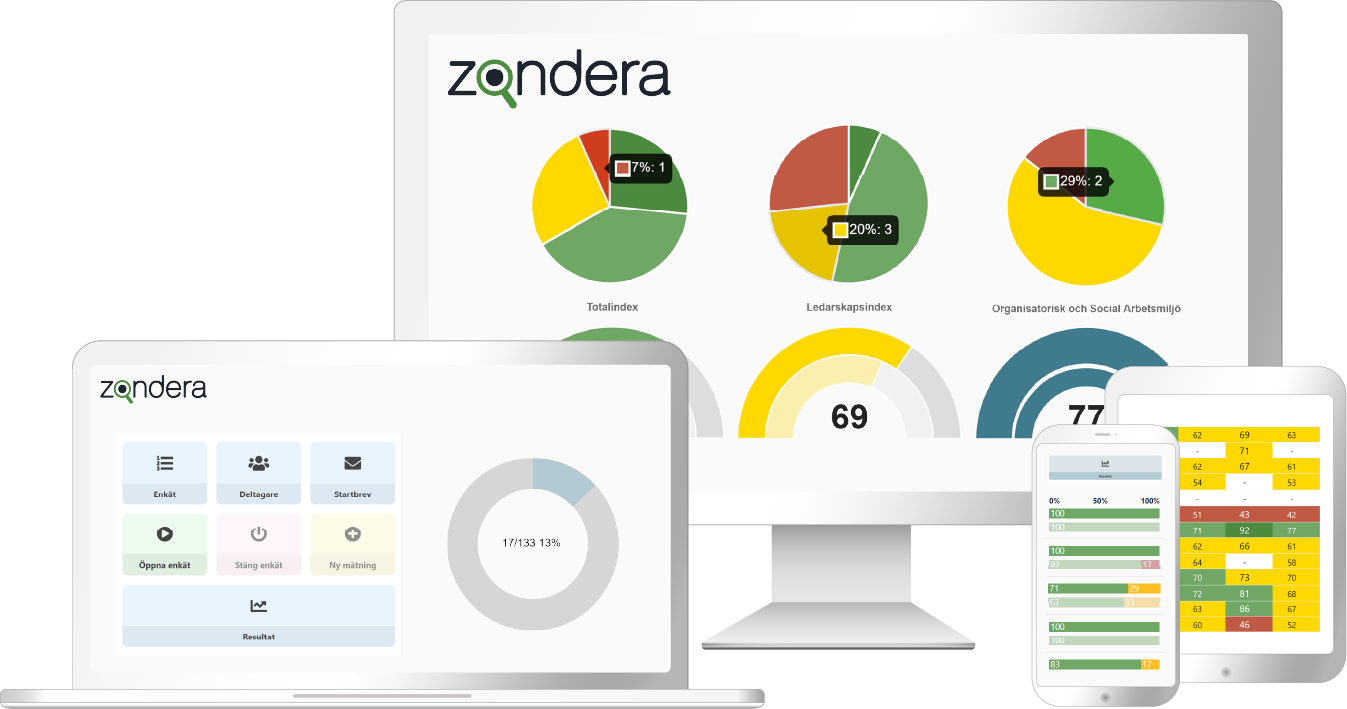Surveys
For more than 20 years we have helped companies and organizations with strategic bases for decision making based on our well-tried and scientifically supported surveys. We help you measure the right areas and get a clear picture of the present situation and your preferential areas of development.
Employee surveys
Zondera’s employee surveys consist of relevant questions and are based on a scientific ground and well-tried methods. In an employee survey, your employees are given the opportunity to provide information about how they feel and what they think about the work environment.
Every employee survey is unique but the goal is always to make your employees feel commitment and satisfaction.









